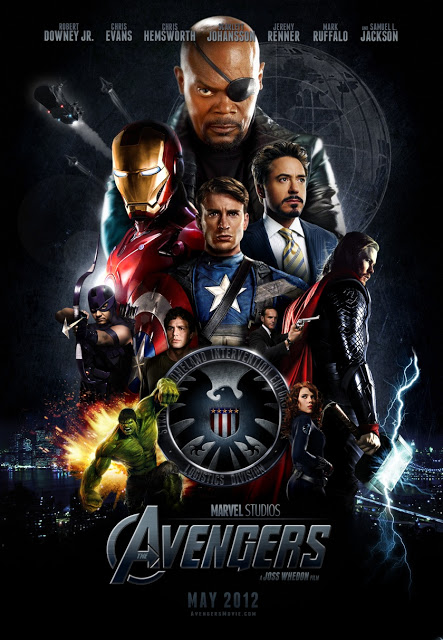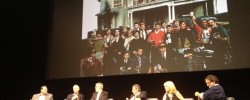
This Week on Demand: 23/06/2013

Ever entrenched in efforts to frustrate, Netflix this week adds not one, but two sequels to movies not yet on the database. I could go to the trouble of tracking down the films which these two follow before proceeding to watch and cover them, but to quote Meatloaf: no. Being as they are American Wedding and Atlas Shrugged: Part II, films whose overall critical reception was less than stellar, it’s seems safe to say we’re not missing much. Nor do we have much in their stead, this newest batch noticeably caught for quality, though not without its handful of little gems. It’s a week that’s heavy on 2013 releases, which would seem a good thing until you feast your eyes on which…

A Late Quartet
In the final moments of A Late Quartet, as the Fugue Quartet celebrate their 25th anniversary with a farewell concert to the elderly leader whose Parkinson’s diagnosis is the catalyst to the film’s drama, co-writer/director Yaron Zilberman manages such profound emotional resonance that one might easily be fooled into forgetting the many storytelling issues that preceded. It’s courtesy primarily of the powerful combination of the film’s two strongest facets: its music and its stars. They—Philip Seymour Hoffman, Catherine Keener, Christopher Walken, and Mark Ivanir—elevate the material far above its station with the emotional depth they bring to curiously clichéd relationships, their performances masterfully enlivening often frustratingly familiar interchanges. Zilberman has a fine idea here, but struggles to bring his various strands to a coherent whole; the result, though working wonders when indeed it works, can only briefly brush the greatness for which it strives. WORTH WATCHING.

Divorce Invitation
Hijinks abound in Israeli director S.V. Krishna Reddy’s English-language debut Divorce Invitation, a rom-com that takes the marriage of the Christian Mike and Jewish Dylan as a springboard to comical observations on the nature of love. Or at least that’s the intent, which wants for fulfilment in a disastrously unfunny and shamefully familiar script. Character development is naturally to be expected of a film; what’s not, however, is character about-facing, as in Mike’s sudden and repeated transitions from stupid schmuck to shrewd businessman and back again whenever the plot requires. This is scripting of the laziest breed imaginable, as illogical as it is unfunny. It’s one of those rom-coms whose finale is so glaringly obvious that you sit there smugly awaiting its inevitably underwrought efforts to subvert convention, but no: this one remains steadfastly on track, consigning itself to a risible fate contemptible far more so for its highly questionable sexual politics than its aspiration-free generic makeup. AVOID IT.

Family Weekend
Equal parts Rushmore and The Loved Ones, Family Weekend is a strange cocktail of a movie, its hugely dysfunctional central family unit pitched with an odd, not always effective level of zaniness. Emily is its protagonist, a 16 year old jump-roper whose family’s apathy toward her participation in a tournament leads her to take matters into her own hands and bring the household closer together, by whatever means necessary. First-time writer Matt K. Turner has a fine idea on his hands here, and for the most part he capitalises thereupon, mining efficient comedy from a weird scenario and flirting here and there with more dangerous darkness. It’s far from perfect, though, some of its turns less engaging than others, few of its characters as interesting as Emily herself. Played by Olesya Rulin, she is a fascinating centre to the movie, maintaining the attention as things—not always intentionally—spiral out of control. WORTH WATCHING.

Happy People: A Year in the Taiga (full review)
“Ecstatic truth” is the term Werner Herzog likes to use to describe the elusive quality he seeks to tease from the world in his films; few have better conveyed the precise meaning of this term than his latest documentary Happy People: A Year in the Taiga, which is not to say that it is his best. Originally a Russian TV production shot by Dmitry Vasyukov, the film—which follows trappers in the titular Siberian region—was found by Herzog, who reshaped the footage and contributed a typically existential voiceover to uncover the ecstatic truth the original material had left behind. His dulcet Bavarian tones as arresting as ever, Herzog waxes lyrical to Vasyukov’s footage, his profound musings as entertainingly strange as they are intoxicatingly incisive. The lack of his presence at the interviewing of these men is felt; Happy People can only really offer us half a Herzog film, but isn’t half so much better than none at all? RECOMMENDED.

Let My People Go!
Employing equally the inherent quirks of its protagonist’s standing as a French Jew and a gay man, Let My People Go! establishes a delightfully silly comedy of errors when he—a postman living and working in Finland—is kicked out by his boyfriend, who refuses to believe that the €19,980 he returned home with was from an uncollected package. His return to his family home is the catalyst to a knowingly absurd tale of typical familial dysfunction, taking in an overzealous attorney, a violently-inclined brother, and the typical array of eccentric relatives. First-time director Mikael Buch makes a more-than-solid debut here; he reins in the more over-the-top aspects of his cast’s performances, tying them together to a pleasingly wacky and, often, endearingly warm whole. Typical, often unambitiously so, of French comedy, Let My People Go! is a thoroughly enjoyable romp, if never as revolutionary a one as it would like. WORTH WATCHING.

Man of the House
Teased to eventually memetic extents earlier this year for his staggeringly grumpy reaction to a Golden Globes gag, Tommy Lee Jones was painted a perseverant grump, a label already so familiar to the veteran actor he opted to lampoon it in PG-13 comedy Man of the House. It’s everything you’d expect from a family movie that puts an undercover cop in charge of a house full of college cheerleaders, except, perhaps, that it’s actually pretty funny, if only for the way Jones makes masterful digs at his own onscreen persona. His character’s romantic subplot—heck, the film’s entire plot, and a good portion of its gags—may be predictably unimaginative, but there’s a certain delight in seeing an actor of this stature and talent having a good time taking digs at his own demeanour. And oh what a good time he does have, so good it’s positively infectious. WORTH WATCHING.

Soldiers of Fortune (Read our full review)
Quite what attracted a cast the calibre of Sean Bean, James Cromwell, Ving Rhames, Christian Slater—well, okay, that one’s not so surprising—to Soldiers of Fortune is as much of a mystery as their pairing is an initially appealing prospect. Playing the organisers and investors in a business that allows the wealthy to experience the thrill of military combat, this is a cast that, even without the benefit of a decent script, look primed to have a fine time together. And they do, for perhaps a grand total of ten minutes across the film’s 90+ minute runtime. A debut director and an inexperienced trio of writers simply don’t have the skills to make anything decent of this potential-laden plot, and instead enact a less-than professional remake of The Expendables, only with action even more poorly directed than that film’s. What a silly mistake is Soldiers of Fortune, an action picture as boring as ever there was. AVOID IT.

Spiders
I know what you’re thinking: “Finally! Hollywood DVD’s arachnid classic is available on demand!” Alas, this is not Gary Jones’ 2000 offering, but a 2013 production helmed by Tibor Takács, who also played a hand in writing the script, or rather inventing the concept and surrounding it in some arbitrary dialogue. That not one of the three credited writers saw the folly of lines like “No bacteria means there’s no virus” and “Some insects, such as spiders…” is indicative of the dearth of intelligence on display here as space-bred spiders overrun New York City after crashing from a Soviet satellite. Credit where it’s due: Spiders knows exactly what it is, and even makes efforts to embrace the campy exploitation at its core, but it takes more than self-awareness to overcome such dreadful dialogue, lacklustre acting, and abysmal digital effects. Perhaps, at least, it deserves praise for being not quite so bad as the 2000 Spiders, but then what is? AVOID IT.

Straight A’s
There’s a hint of Brothers—more the Jim Sheridan remake than Susanne Bier’s Dogme 95 original—to James Cox’s family drama Straight A’s, which uses the absence of a patriarch and the sudden arrival of his no-good brother as the springboard to an exploration of the intricacies of longing. There’s as much potential in the cast as in the premise, Anna Paquin and Luke Wilson playing the couple separated by his dedication to work while Ryan Phillipe fills the role of the unwanted blast from the past. Though occasionally overly prone to lens flare, Cox brings a certain beauty to the film, doing well to aesthetically patch the gaps in TV writer David Cole’s less-than-successful screenplay. Paquin and Phillipe struggle valiantly to create the connection between their characters, but without the solid foundation of workable writing they’re fighting a battle they can’t hope to win. More surface sheen than actual emotion, this is a sadly stagnant affair. AVOID IT.

Super (Read our full review)
It’s tempting to view Super—focusing as it does, at least nominally, on superheroes—as the reason writer/director James Gunn was chosen to helm Marvel’s upcoming Guardians of the Galaxy; the more likely reason, of course, is Slither, his extraterrestrial first endeavour. Super, nevertheless, with its jet-black humour sensibility and stunningly graphic bursts of violence, offers a promising vision of what Gunn could conceivably bring to the tricky property. Not unfairly compared to Kick-Ass, it stars Rainn Wilson and Ellen Page as vigilantes who adopt eccentric identities as they try to rid the streets of crime, their down-and-out performances the core of a film that, for all its many problems—some narrative, some ethical—manages a surprisingly endearing humanity. Gunn isn’t afraid to take these characters to dark places; his film was all-but lost beneath the heaps of praise for Kick-Ass, despite—it could and should be argued—being the better, more interesting and entertaining movie.RECOMMENDED.

The ABCs of Death (Read our full review)
It’s a terrific concept: 26 great horror directors; 26 letters of the alphabet; 26 gruesome ways to die. The problem, of course, is that The ABCs of Death only musters about 5 great directors, a worrying quantity of its helmers not even particularly good as they bring their concepts to fruition. Anthology films are always tricky territory, but it’s not often the ratio is so heavily weighted toward the negative as here. With only a sole brilliant segment—mounted, amusingly enough, by an outsider who won a contest to participate—a whole heap of average ones, and more than a handful of horrid entries, this is an alphabet soup that’s often hard to swallow, whole swathes of subpar sections making it a wearisome task indeed to watch. Great as the best are, they’re simply not great enough to salvage the overall quality; this is a tedious bore of a movie, showcasing far less imagination than necessary. AVOID IT.

The Avengers (Read our full review)
Among the myriad surprising things that surround Marvel’s shining centrepiece The Avengers—its staggering box office take, its successful connection of five other films, its proof that Marvel Studios’ seemingly self-destructive shared universe idea could actually work—what’s perhaps most striking of all is that it’s such a great movie. That the studio handed the most valuable set of keys in Hollywood to a helmer the like of Joss Whedon is indicative of the reality that—beyond making an ocean of money—Marvel is genuinely interested in doing something interesting with its stable of characters. Bulging with rabble-rousing action, beaming with risqué wit, and bursting at the seams with a genuine depth of emotion, The Avengers is one of the biggest and best blockbusters to come out of Hollywood in decades, a triumphant indication of the potential cross-section of commerce and art, and an enthusing promise—already paid off in Iron Man 3—of much more greatness to come. HIGHLY RECOMMENDED.

The Playroom (Read our full review)
Enshrouded in clouds of smoke, furnished in drab browns and creams, the suburban home in which The Playroom unfolds is an unintentionally perfect visual representation of the movie’s own dull blandness. Sisters Julia and Gretchen Dyer respectively direct and write this well-intentioned but consistently underwhelming 1970s-set drama, their focus on the four children of alcoholic parents never managing anything more than minute glances at the (dys)function of this domestic scenario. John Hawkes works as well as can be managed with so tedious a script, imbuing his father character with a simultaneous compassion and frightfulness. Molly Parker, meanwhile, overdoes it as the mother, her histrionics hardly helping establish the serious tone for which the movie strives. Framed around historical events, it’s a film that never capitalises on the themes of empowerment and emancipation it touches upon, its minor handful of meaningful moments lost amidst a sadly turgid whole. SO-SO.

This Girl Is Badass
There’s an extraordinary fight scene in This Girl Is Badass that easily proves true the movie’s title: Jukkalan, a bike courier employed by her uncle as a drug mule between rival gangs, fends off the attacks of gangsters from whom she has stolen money with her bicycle. It’s a terrifically staged sequence with some wonderfully exciting moves that thrill hugely; alas, it’s but one of two such scenes, the rest of the film an overly quirky show of oddball comedy and needlessly baggy subplots. Director Petchtai Wongkamlao conveys a decent sense of his Bangkok setting, but his script—some early hilarity aside—is much too broad to support a feature runtime, and his action—save the inspired aforesaid sequence—all too visibly staged to hold the attention. However badass this girl may be, however endearing rising star JeeJa Yanin may make her, the movie most certainly is not. SO-SO.

Toys in the Attic
Cast in the same mold as his countryman Jan Švankmajer, Czech director Jirí Barta is an animator of demented brilliance, his stunningly weird stop-motion creations—though perhaps more family-friendly than Švankmajer’s—nonetheless quite, quite terrifying. Toys in the Attic might be best described a stop-motion Toy Story if that wasn’t in itself a computer-animated Fétiche. Barta’s film draws on both, playing like a feature-length excursion into Sid’s room with all its creepy cross-breeds. If there’s a drawback to the film, it’s that Barta can’t manage to match the invention of his aesthetic style in the story, which relies on a disappointingly old-fashioned story structure. Forest Whitaker and John Cusack head the English dub presented here, which—though well-directed by Vivian Shilling—seems to rob the film of a certain charm that might come from the original Czech dialogue. Easily-scared kids are advised to steer clear; this is about as weird as children’s films get. RECOMMENDED.
Related Posts
Ronan Doyle
Latest posts by Ronan Doyle (see all)
- Review: Our Children (2012) - July 31, 2013
- Review: Terraferma (2011) - July 31, 2013
- Review: Cockneys vs Zombies (2012) - July 30, 2013
-
Doug Heller
-
baronronan
-
Doug Heller































